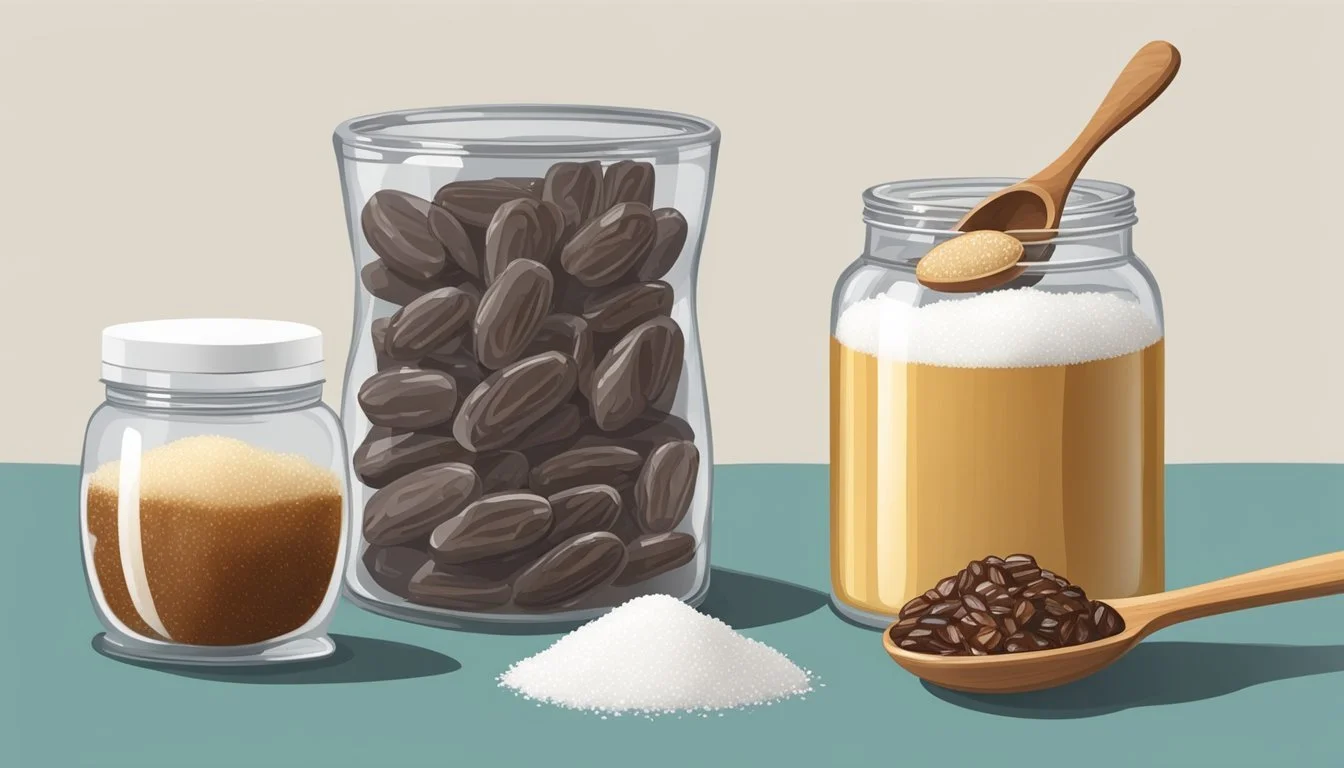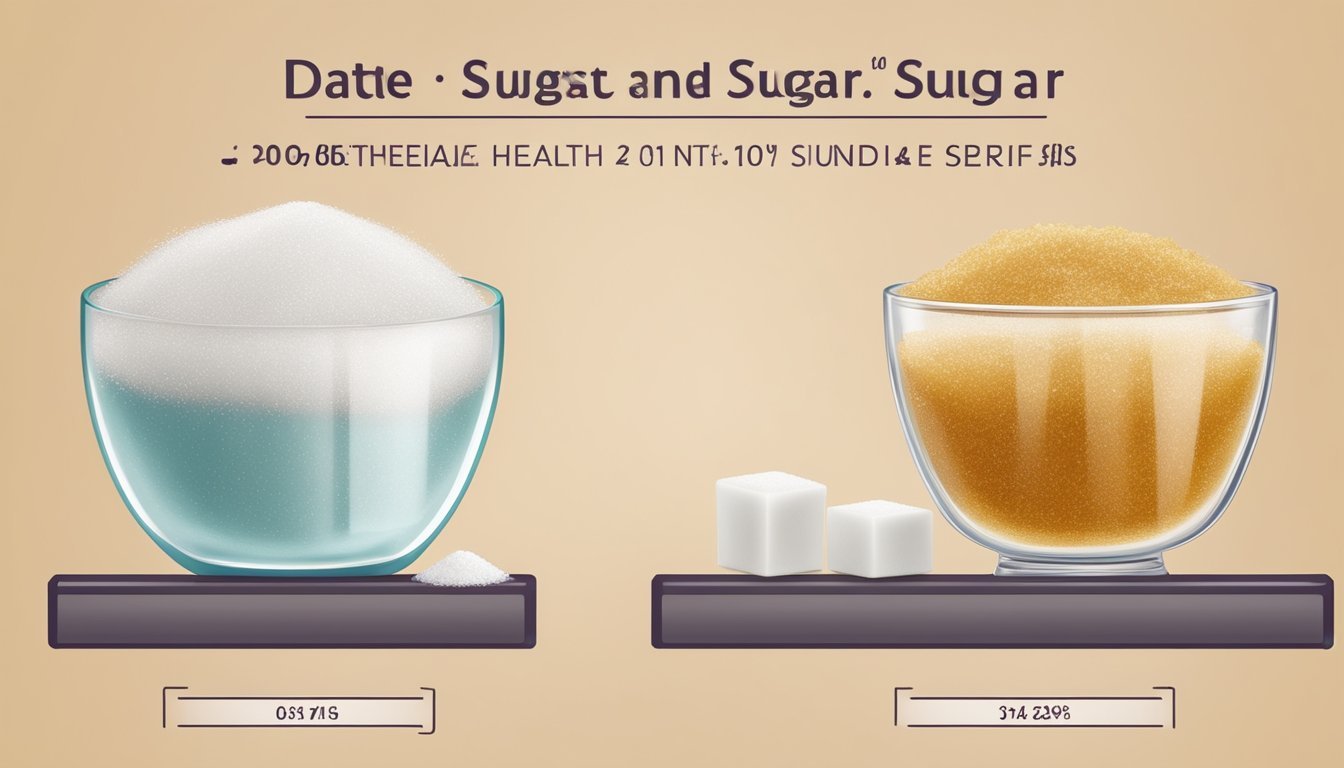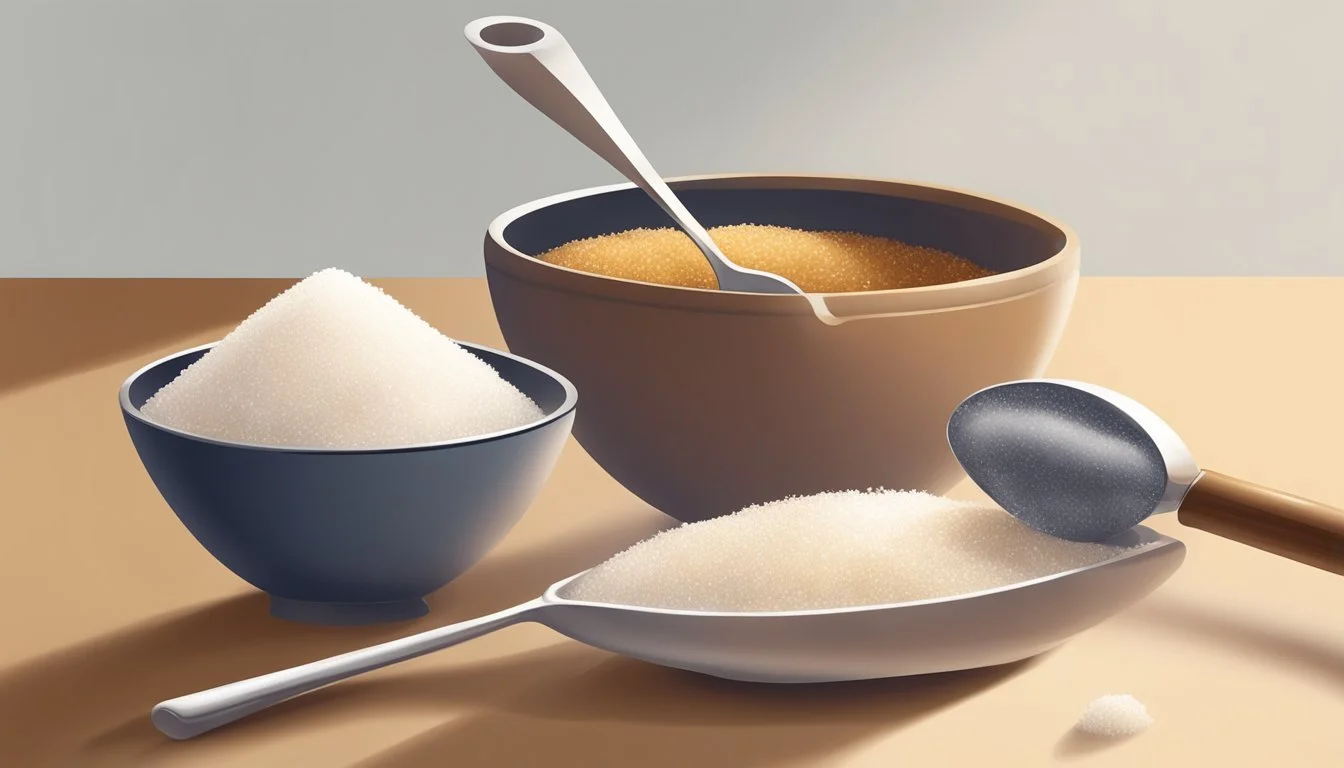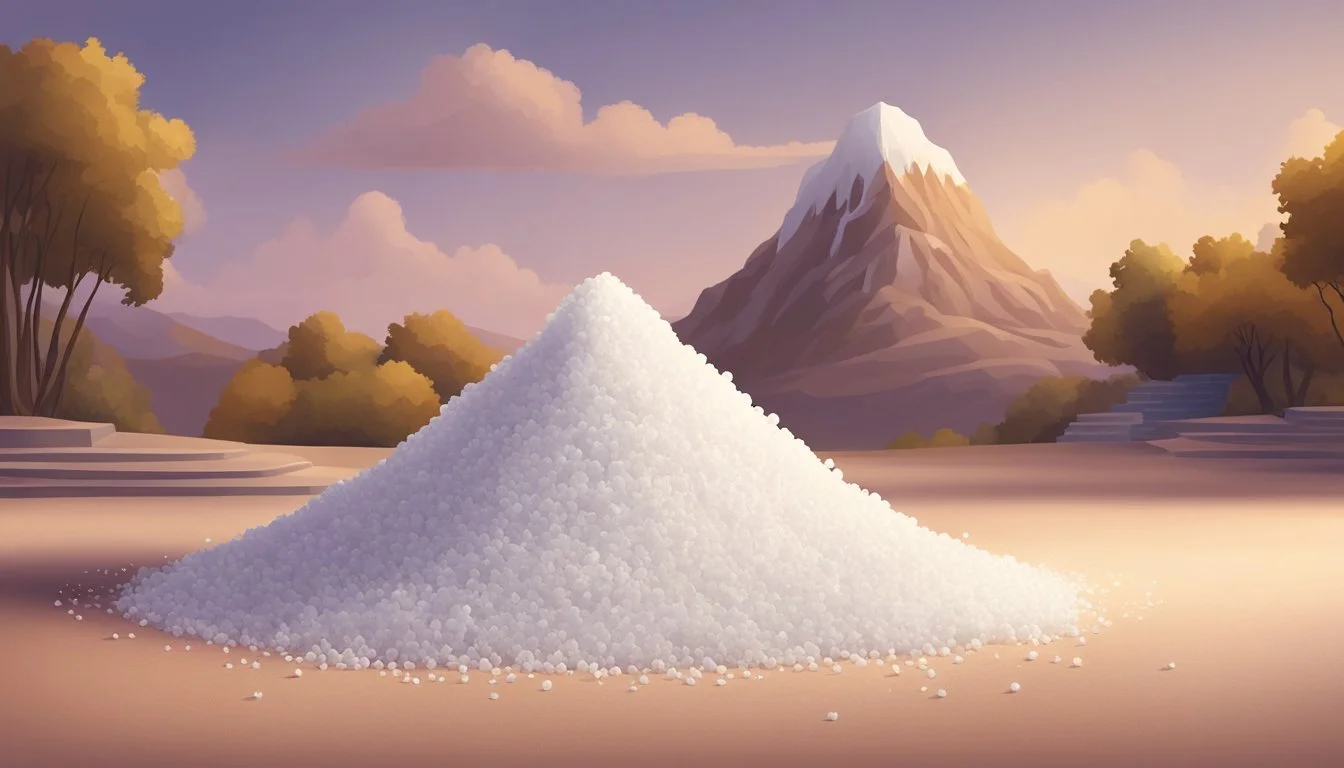Is Date Sugar a Healthy Alternative to White Sugar?
Unveiling the Facts
Date sugar is increasingly gaining popularity as a natural sweetener, piquing the interest of health-conscious consumers and nutritionists alike. Made from dried and ground dates, it retains some of the fruit's nutritional components, such as fiber, vitamins, and minerals like iron, which plays a vital role in red blood cell production and oxygen transport in the body. This sweetener, with its caramel-like taste, has a lower glycemic index than white sugar, suggesting a lesser impact on blood sugar levels.
While date sugar can be integrated into baking, cooking, and beverages as a one-to-one replacement for white sugar, it exhibits different properties because of its fibrous nature. The fiber in date sugar does not dissolve completely, which can affect the texture in certain recipes. However, this same characteristic may contribute to a feeling of satiety and aid in digestion, offering nutritional benefits that refined sugars lack.
The consideration of date sugar as a healthier alternative to white sugar hinges on its nutritional profile and lower glycemic index. Consumers looking to reduce their intake of refined sugars, while still enjoying sweetness in their foods, may find date sugar a viable option. Yet, it remains important to use it in moderation as part of a balanced diet to achieve overall health benefits.
Nutritional Profile of Date Sugar
Date sugar, derived from dried dates, offers a richer nutritional profile compared to white sugar, particularly in terms of its fiber content and array of vitamins and minerals.
Fiber Content
Date sugar provides a noteworthy amount of fiber, a crucial nutrient supporting digestive health. Unlike white sugar, which is devoid of fiber, date sugar contains this essential carbohydrate, promoting satiety and aiding in glucose absorption and digestion.
Vitamins and Minerals
Date sugar is a source of vitamins and minerals that contribute to overall health. It includes a spectrum of B vitamins, such as niacin (B3) and pyridoxine (B6), both of which are significant for energy metabolism and the nervous system. Regarding minerals, date sugar is a good source of potassium, magnesium, and copper—elements essential for cardiovascular, bone, and immune health. Iron, involved in oxygen transport and calcium, crucial for bone health, are also present in small yet meaningful amounts.
Health Impacts of Date Sugar
Date sugar, derived from dehydrated dates, offers nutritional benefits not found in white sugar. It contributes to blood sugar management, possesses antioxidant properties, and may have an impact on heart health and obesity.
Blood Sugar Management
Date sugar has a lower glycemic index (GI) than white sugar, which means it causes a slower rise in blood sugar levels. This can be particularly beneficial for individuals needing to manage their blood sugar. A controlled rise in blood sugar helps prevent the spikes and drops associated with refined sugar consumption.
Antioxidant Properties
The antioxidant content of date sugar is noteworthy, as it comes from whole dates. Antioxidants are important as they combat oxidative stress and may reduce the risk of chronic diseases. Unlike white sugar, date sugar retains these beneficial antioxidants due to minimal processing.
Heart Health and Obesity
Date sugar’s nutrient composition, including fiber, may contribute positively to heart health. Fiber can assist in reducing levels of bad cholesterol, a risk factor for heart disease. Moreover, as date sugar is more nutrient-dense and less processed, its consumption, as part of a balanced diet, might support weight management and help prevent obesity.
Comparison with Other Sweeteners
This section examines the nutritional and health implications of using date sugar in comparison to other common sweeteners such as white sugar, honey, maple syrup, and other natural sweeteners.
Date Sugar vs. White Sugar
Date sugar is derived from dehydrated dates and retains some of the fruit's nutritional benefits, such as fiber, vitamins, and minerals. White sugar, also known as table sugar or sucrose, is a refined sugar with no significant nutritional value. It lacks fiber and essential nutrients, and its consumption is linked to a rapid increase in blood sugar levels.
Nutrient Profile: Date sugar contains fiber, potassium, and vitamins; white sugar does not.
Blood Sugar Impact: Date sugar has a lower glycemic index compared to white sugar.
Date Sugar vs. Honey and Maple Syrup
Compared to honey and maple syrup, date sugar provides dietary fiber, which is absent in the liquid sweeteners. Both honey and pure maple syrup contain varying amounts of antioxidants and nutrients like zinc and manganese. However, they are primarily composed of fructose and glucose and can elevate blood sugar levels, although usually not as rapidly as white sugar.
Fiber Content: Date sugar has fiber; honey and maple syrup do not.
Nutritional Value: Honey and maple syrup offer antioxidants; date sugar provides vitamins and minerals.
Date Sugar versus Brown Sugar and Other Natural Sweeteners
Brown sugar is essentially white sugar with molasses added back into it, offering slightly more minerals than its white counterpart but still lacking fiber. Other natural sweeteners like coconut sugar carry similar nutrients to date sugar but often have a higher fructose content, which can impact blood sugar levels. Date sugar stands out for its fiber content and lower glycemic index.
Fiber Presence: Date sugar includes fiber; brown sugar does not.
Fructose Content: Coconut sugar and other natural sweeteners may have higher fructose levels, affecting blood sugar.
Culinary Uses of Date Sugar
Date sugar serves as a natural sweetener made from dehydrated and ground dates, offering a rich flavor profile to a variety of culinary applications. It retains some of the nutritional benefits of whole dates and can impart a subtle sweetness to different foods, from baked items to beverages.
In Baking
In baking, date sugar can replace white or brown sugar in a 1:1 ratio. It works exceptionally well in recipes that benefit from its deep, caramel-like flavor, such as:
Muffins: Enhances the natural sweetness without overpowering other flavors.
Cookies: Provides a rich texture while contributing to the dessert's overall sweetness.
Baked Goods: Melds well with other ingredients, although it may not dissolve completely due to its fibrous nature.
For recipes requiring a smooth texture, it may be necessary to blend the date sugar further to reduce grittiness.
In Beverages
Date sugar may not dissolve fully in hot beverages due to its fiber content; however, it can add a touch of sweetness when stirred into:
Coffee: Complements the robust flavor of coffee with its natural sweetness.
Tea: Can sweeten tea, especially herbal varieties, lending a nuanced taste profile.
Smoothies: Blends easily into smoothies, adding sweetness along with nutritional benefits.
In Cooking
Date sugar can enhance the flavor profile of several cooked dishes. Its uses include:
Sauces and Salad Dressings: Can act as a sweetening agent in homemade dressings, balancing acidity and spice.
Oatmeal: Sprinkled on top, it enhances the dish with sweetness and texture.
Topping for Desserts (What wine goes well with desserts?): Serves as a crunchy, sweet garnish for various desserts.
Unlike other sweeteners, date sugar doesn't melt, so chefs may use it in dishes where its firm texture can be appreciated, such as crumbles or streusels.
Practical Considerations
When considering date sugar as a sweetener, practical aspects such as how to substitute it, store it, and where to buy it effectively are crucial. These considerations ensure that one makes the most out of this natural alternative.
Substituting Date Sugar
Date sugar, a whole-food sweetener, makes for an exceptional substitute for white sugar due to its nutritional profile and fiber content. It is important to note that while they can substitute one another by volume, date sugar does not dissolve as well in liquids due to its granules being made from dried, ground dates. It is best used in recipes where a direct dissolve isn't necessary, such as baking or sprinkling over foods. For recipes requiring a syrup-like consistency, consider date syrup as a substitute for liquid sweeteners.
Storage and Handling
Date sugar should be stored in an airtight container in a cool, dark place to maintain its quality. Due to its higher fiber content, it can clump together, so ensure it stays dry to prevent spoilage. If clumping occurs, one can break it apart before use. Proper handling preserves its longevity, allowing one to enjoy the natural sweetness over an extended period.
Purchasing Tips
When looking to buy date sugar, opt for organic and raw varieties to ensure a product that is free from unnecessary additives and retains all its nutritional benefits. It may be available in health food stores or in the organic section of a grocery store. Always check the label to ensure it's made from 100% dates with no additional sweeteners or preservatives. For a vegan option, verify that it's certified vegan as some sugars can be processed with animal-derived products.
Date Sugar in Special Diets
Date sugar is gaining attention as a natural sweetener that can be incorporated into various special diets. Derived from dried dates, this sweetener retains more nutrients than regular white sugar, making it a viable option for those adhering to specific dietary guidelines.
Vegan and Vegetarian Diets
Date sugar is a plant-based product that perfectly aligns with vegan and vegetarian diets. It is not processed with animal byproducts, ensuring that it adheres to the strict dietary preferences of vegans and vegetarians. Additionally, date sugar contributes dietary fiber to these diets, which is essential for digestive health.
Low Glycemic Diets
Those on low glycemic diets may find date sugar beneficial due to its lower glycemic index (GI) compared to regular sugar. Foods with a low GI are digested and absorbed slowly, leading to a gradual rise in blood sugar levels. For individuals managing their intake of sugars, date sugar can be considered in moderation.
Diabetes Management
Managing diabetes, especially type 2 diabetes, involves careful monitoring of added sugars and maintaining stable blood sugar levels. Date sugar, while still a sugar, has a composition that may impact blood sugar less dramatically than white sugar. People with diabetes should consult healthcare providers before making changes to their diet and consider all sugars as part of their total carbohydrate intake.
Environmental and Ethical Considerations
When considering date sugar as an alternative sweetener, one must take into account its environmental impact and the ethical implications of its production process.
Sustainable Harvesting
Date sugar originates from whole dates that are typically harvested from date palms. The major advantage of date palms is their ability to thrive in arid environments, where few other crops can survive, thereby not competing with food crops for valuable resources. When grown organically, dates offer an addition as a natural alternative sweetener with fewer synthetic chemicals involved, potentially reducing harm to ecosystems. It's also vital that the cultivation methods adhere to sustainable practices, protecting both the plant species and the agricultural biodiversity of the region.
Processing and Carbon Footprint
The production of date sugar involves drying the whole dates and then grinding them into granules. Compared to the highly refined process of making white sugar, which strips away all nutrients leaving almost pure sucrose, date sugar retains more of its natural elements due to less processing. However, drying or dehydrating dates is energy-intensive and can contribute to the carbon footprint of the final product. Date sugar might have a lower environmental impact compared to conventional white sugar if its processing uses renewable energy sources and practices that minimize waste. As a byproduct, date syrup and other forms of sweeteners like palm sugar, derived from the sap of date palms, may also follow similar or even more energy-efficient methods, lending to the discussion on which sweeteners offer more sustainable options.
Final Thoughts
Date sugar offers a natural alternative to refined sugars, which often come from sugar beet or sugar cane. Unlike its processed counterparts, date sugar retains the fiber and nutrients from the dates it derives from.
Nutritional Benefits: Date sugar contains essential vitamins, minerals like iron, and fiber. Its nutritional profile supports energy metabolism and may contribute to better overall health.
Fiber Content: The fiber present can aid digestion and help to maintain blood sugar levels by slowing carbohydrate absorption.
Oxygen Transport: Iron is a key component of hemoglobin in red blood cells. Adequate iron levels are essential for oxygen transport in the body, and date sugar provides a source of this mineral.
Health benefits should not be overemphasized, but the replacement of refined sugars with date sugar may result in a reduction of inflammation linked to high sugar intake. As with any sweetener, moderation is essential.
When considering carbohydrate content, it's important to note that date sugar is composed almost entirely of carbohydrates. However, due to its being less refined, it may have a lower glycemic index than white sugar, potentially making it a preferable option for those managing blood sugar levels.
When substituting white sugar with date sugar, the user can typically utilize a 1:1 ratio, though adjustments based on personal sweetness preference may be necessary, given date sugar's less intense sweetness.
Ultimately, when used judiciously, date sugar can be part of a healthy diet offering a more natural, nutrient-rich alternative to standard table sugar.






